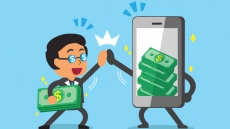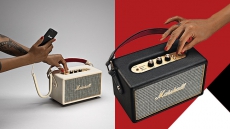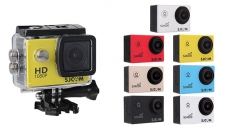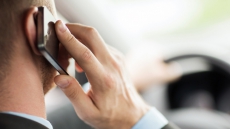The long term effects of headphone use.
The past decade has been revolutionary in defining how we listen to music. The era of phonographs, cassettes, and CDs had one thing in common — they projected music externally and covered large areas. However, at the dawn of Walkman, MP3 players and the iPhone, musical transmission became highly dependent on headphones, transforming the musical experience into a highly portable system.
Thus, the amount of music that people now listen to and how they listen to it brings a new set of effects. In young adults, hearing loss is on the rise and so is hearing impairment, especially compared to the 1980s and 1990s. Melanie Campbell, a speech language pathologist in the Faculty of Rehabilitation Medicine, elaborates the perils of such a culture in which youngsters are not concerned about the future impacts of listening to music on high volumes. Given that music and popular culture is such an important and dominant part of our lives, it is hard to evaluate what we are doing to our body in the immediate future.
Many of us take our sense of hearing for granted and are not inclined to notice small changes as any detrimental impact to hearing does not happen overnight, but is rather a gradual process. From a more scientific and technical lens, the inner structure of the ear is described as snail-like. In mammals, there are tiny auditory hair cells that are responsible for picking up sound vibrations and transmitting them electronically to the brain. Now, put into perspective the idea of listening to sound at a high level for prolonged periods of time, which causes these hairs to be destroyed. In this scenario, the damage is permanent as the hairs do not grow back; these hairs are unable to regenerate. We are unaware of the damage until little sounds — such as shutting door and walking feet — start to disappear.

Sound is measured in units called decibels. According to the National Institute on Deafness and Other Communication Disorders, there is low likelihood that sounds at or below 70 A-weighted decibels (dBA) will lead to loss of hearing. However, above 85 dBA, sounds can contribute or result in hearing loss with long or repetitive exposure.
Of course, the idea is not to create a scare around using headphones. However, problems like hearing loss from headphones are entirely preventable. It is essential that we proactively take preventative measures to practice healthy habits when it comes to listening to our music.
1 Check the volume by holding your headphones in front of your face. If you can hear the music, turn down the volume. Another proxy is that if you cannot hear anything around you, the music is too loud! Take listening breaks if needed.
2 Buy the right headphones that balance the type (on ear, over ear, in ear) with the right sound quality. Do not settle for something with cheap sound quality as it may cause you to turn up the volume to unsafe levels to compensate for the poor sound.
3 Set a maximum volume limit on your smartphone or other device. By following these tips and becoming more aware of your music-listening behaviour, you are taking steps to protect yourself from future health issues — not just limited to hearing, but also emotional distress, anxiety and even sleeping disorders. As one of the five primary senses, hearing is a gift that we may take for granted until a problem arises. To keep it around aslong as possible, turn that volume dial down!
Use the below pointers to compare everyday sounds:
60-70 dBA: Normal conversation
74-104 dBA: Movie theater
80-110 dBA: Motorcycles and dirt bikes
94-110 dBA: Music through headphones at maximum volume, sporting events, and concerts
110-129 dBA: Sirens 140-160 dBA - Fireworks show







